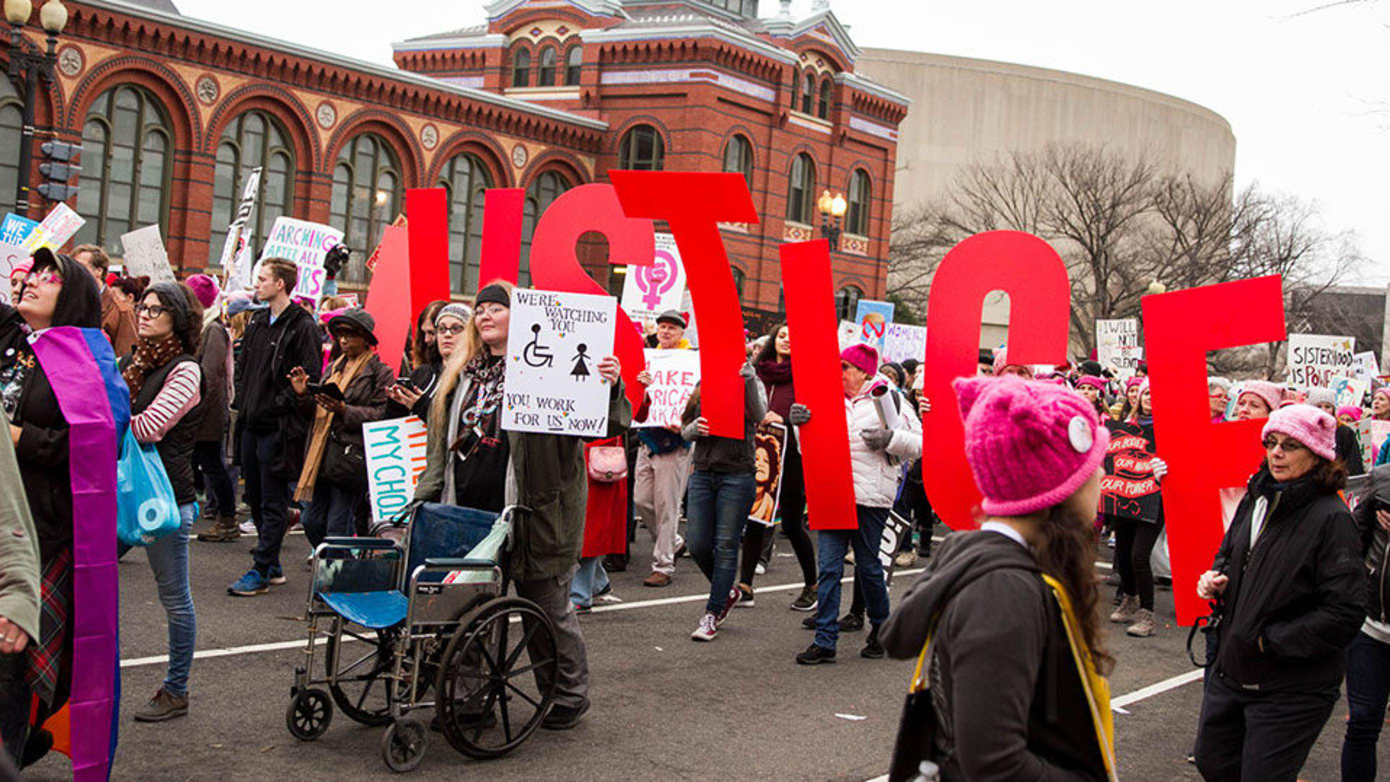While people were drawn to the Women’s March on Washington for many reasons, women’s health was front and center.
Recent Republican moves to defund Planned Parenthood and repeal the Affordable Care Act (ACA) have left millions of Americans at risk for losing basic health care, and hundreds of thousands took to the streets across the capital to protest.
Mayor of the District of Columbia Muriel Bowser addressed the topic early on, and had one message for the incoming administration regarding restricting health care and women’s reproductive rights: “Leave us alone.”
Next up, filmmaker Michael Moore reminded the crowd that “Roe v. Wade didn’t happen in a vacuum,” and that it started before the 1973 landmark Supreme Court case with movements in New York and California. He encouraged everyone on the East Coast to get to work to initiate the next progressive steps.
Actor Ashley Judd read a poem from 19-year-old Tennessee poet Nina Donovan entitled “I am a Nasty Woman,” which highlighted health injustices like the fact that menstrual products are taxed, while Viagra and Rogaine are not.
“Reproductive rights are human rights,” Planned Parenthood President Cecile Richards told the crowd, assuring those gathered that “our doors will stay open.”
Marchers flocked to D.C. to express discontent over shifts in health care coverage initiated since the November election.
“I’m concerned about the countless children and families that are currently reliant on Obamacare to provide them with the critical services that they would otherwise not be able to afford,” said Michelle Boyd, MPH, LMSW a public health professional who traveled from New York City for the march. “I’m worried that there will a void and nothing to support them in the absence of this health care act.”
Leslie Wilens Curley of Arlington, VA has volunteered with Enroll Virginia for the past four years, helping people learn about and enroll in insurance plans through the ACA. Now she’s concerned about what will happen next.
“I’ve seen low-income families gain quality, affordable health insurance coverage so that their medical care can be addressed,” she said. “The repeal of the ACA without a replacement plan will be catastrophic for families that depend on low-cost medical care so that they can continue to go to work.”
The threat of a return to the days where people could be excluded from health insurance because of unavoidable preexisting conditions was also a serious concern for attendees.
To continue reading, please visit SheKnows




comments